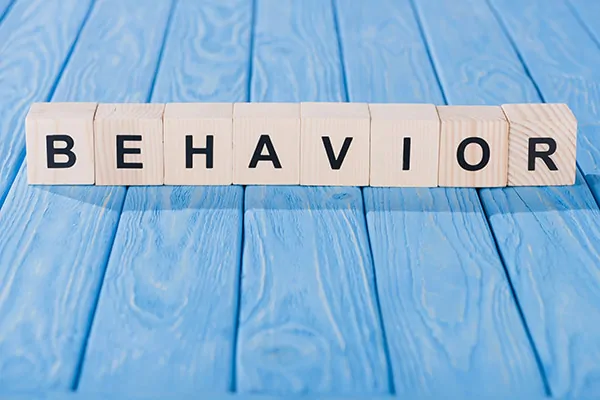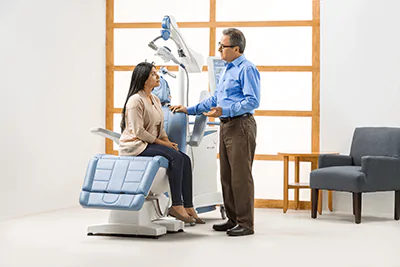How Do We Learn & Modify Behavior? – Part I
Every day and in every moment we are learning and learning to modify behavior. Long before our formal education begins, we begin to formulate notions and ideas about the world we live in. We learn to modify behavior from our environment and experiences, from the way we interact with others, and the ways that they respond to us.
We learn to associate paired behavior in our environments: that an on/off switch controls the light in a room, and that the strum of a guitar creates music. From watching others and then doing it ourselves, we might actually learn to play the guitar, or ride a bike, and by leaving either outside, we might also learn the consequences of a rain-damaged instrument or rust-ridden bicycle. Similarly, if either were to be replaced without any real work on our end, we might learn that it is not important to modify behavior and take care of our things.
The process of learning involves gaining knowledge through experiences and modifying our behavior in response. By paying attention to social cues and observing our environment, we are equipping ourselves with important skills for survival. As humans we are readily adaptive beings, consciously and subconsciously interpreting stimuli from our environment and processing it through filters for memory, concentration, and motivation, all of which share a role in the learning and retention process.
An important aspect of growth, of changing already learned behavior, is bringing awareness to these processes that are occurring under the surface, understanding their function, and capitalizing on them to promote change.
Observational Learning
One way that behaviors are learned, is through the process of observational learning: by watching others engage in different behaviors and replicating them yourself. A good example of this is any sort of dance class or cooking show, where you might watch someone perform a particular skill before given the chance to mirror the behavior. This type of learning often forms the basis for our current formal educational system, where through instruction and demonstration, individuals are given opportunities to learn.
Most notably, this type of learning is referenced when discussing Albert Bandura’s Social Learning Theory and series of experiments involving children’s exposure to violent programming depicting aggression towards a “bobo doll” and their subsequent aggressive behavior when given access to a bobo doll of their own. This experiment cued parents in to the impacts of the violence that their children were exposed to through television and video gaming. Attempts however to modify behavior is known to have little effect when children are exposed to violence in their daily lives, and when parents model aggressive behavior of their own, as is often the case with parents that ascribe to the “do as I say, not as I do” parenting mentality.
Additionally, observational learning is at work in moments when individuals learn by watching others, both through their mistakes as well as their positive actions. For example, if there is an important presentation coming up, whether for school or for work, one is likely to pay close attention to the way that a colleague presents their material, the problems they run into when expressing their information, and the aspects of their work that seems to impress the audience. Conversely, someone who fails to learn from the first colleague’s mistakes and ends up repeating them may lose the respect of their peers and superiors.
Bandura hypothesized that in any situation, the four conditions of attention, retention, reproduction and motivation need to be present in order for the observed skill to be able to be reproduced. It is through attention to these very basic properties that we are able to assist our clients in overcoming the challenges that face them, and the reason they sought treatment.
Attention
Of course for any sort of learning to take place, it is a given that one must raise awareness and devote attention to the model of the new or desired behavior. In today’s world, there are a great many competing attentions, however, and one’s state of drowsiness, discomfort, illness or propensity towards distraction all affect their ability to learn. Without primary attention directed at the intended behavior, there is little chance that a conscious behavior will be able to be replicated to a great level of detail.
One such element useful in keeping the attention of those you are trying to teach is related to the one conveying the message and their overall appeal. We know from the research that individuals are more likely to learn from others who are similar to them, or from those who have earned prestige or success for demonstrating the behavior. This is the general premise behind why athletes operating as mentors for younger children can have huge effects, and college students are prone to take advice from successful adults. Conversely, if individuals witness others escaping punishment for their behavior, or worse, even being rewarded for their behaviors, the likelihood that they will follow in those very same footsteps is large.
Retention
The second condition required for observational learning is being able to remember the behavior that was modeled. Without proper memory of the behavior, an individual is less likely to imitate it.
Reproduction
The third requirement for this type of learning is dependent upon one’s physical or mental ability to replicate the behavior observed. Without practice, and before developing the baseline skills necessary to engage in the behavior, any precursory attempts will not likely be successful. For example, if a teen tries to dunk a basketball after watching a college basketball player do so, it may be discovered that they are not physically developed enough to replicate the behavior, nor do they possess the skills necessary. However with consistent practice, and maybe even a growth spurt, they might be able to dunk the ball.
Motivation
Perhaps the most important element in the observational learning process is dependent upon one’s motivation. If there is no motivation to replicate the behavior, then the other aspects are rendered unimportant. Some important aspects of motivation identified include understanding the model of the behavior’s motivation for engaging in the act or observing their receipt of a reward, or being offered incentives for one’s own participation. Of course these effects work in opposite as well, and models who are punished or ridiculed for their behavior are less likely to pass along these methods.
A Moment of Nsight
At Nsight, we use this knowledge of human psychology to help us create an environment for our clients and residents that will help them to focus on the importance of their emotional health. For these reasons, the treatment team at Nsight has 13 licensed Masters and Doctorate level therapists and two psychiatrists. This helps us to ensure that our clients are receiving the highest level of care from those who are qualified to give it. We also employ support staff, and encourage our clients to learn in group situations from others who are further along the process of recovery. We aim to employ all of the methods and skills that we teach to our clients in our own lives, and reject the “do as I say, not as I do” mentality. We aim to be an example, to offer hope that life can be lived another way.
We believe in the power of mindfulness, of paying attention on purpose, and believe that this is a large reason why clients are able to become successful in their treatment program. Through our emotion-focused treatment approach, we teach our clients the skills they need in order to approach their emotions related to the problems in their life differently. We believe that if they can first become mindful of the way that their interpersonal patterns play out, not only in session, but in their daily lives, and are given the skills to respond differently, they will then have the hope of producing a different outcome.
Make sure to check back regularly for the next installment in this series How Do We Learn – Part II to learn about other methods we use to inform our treatment process.



